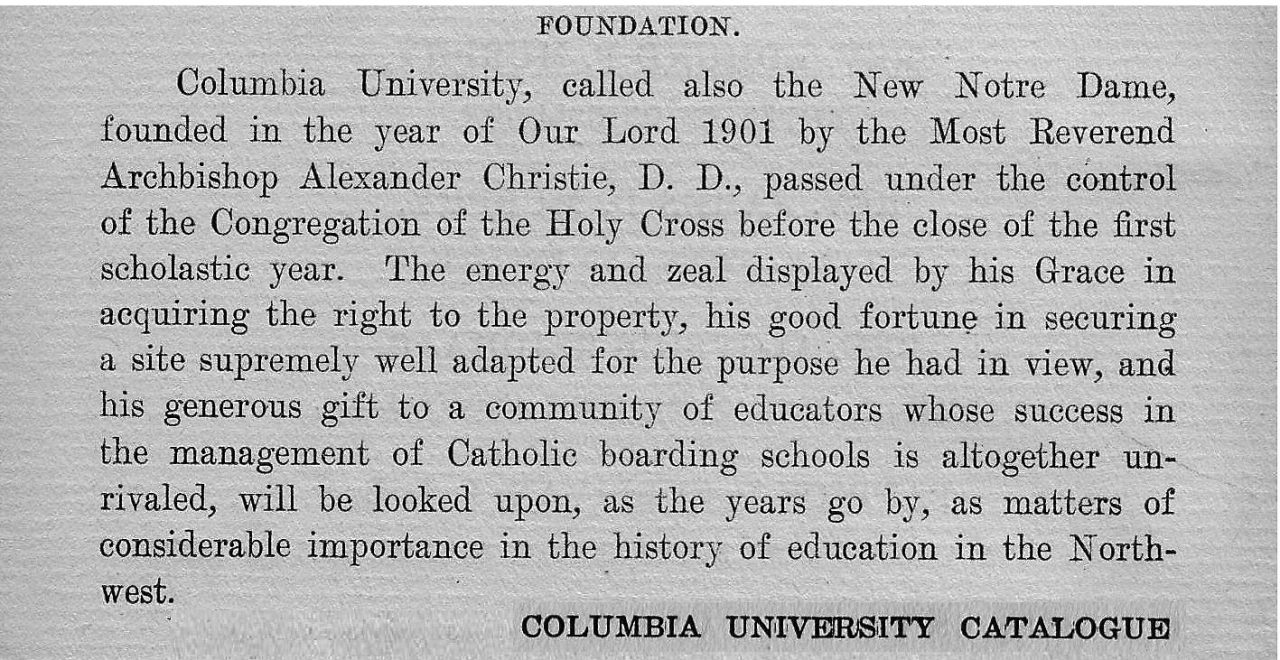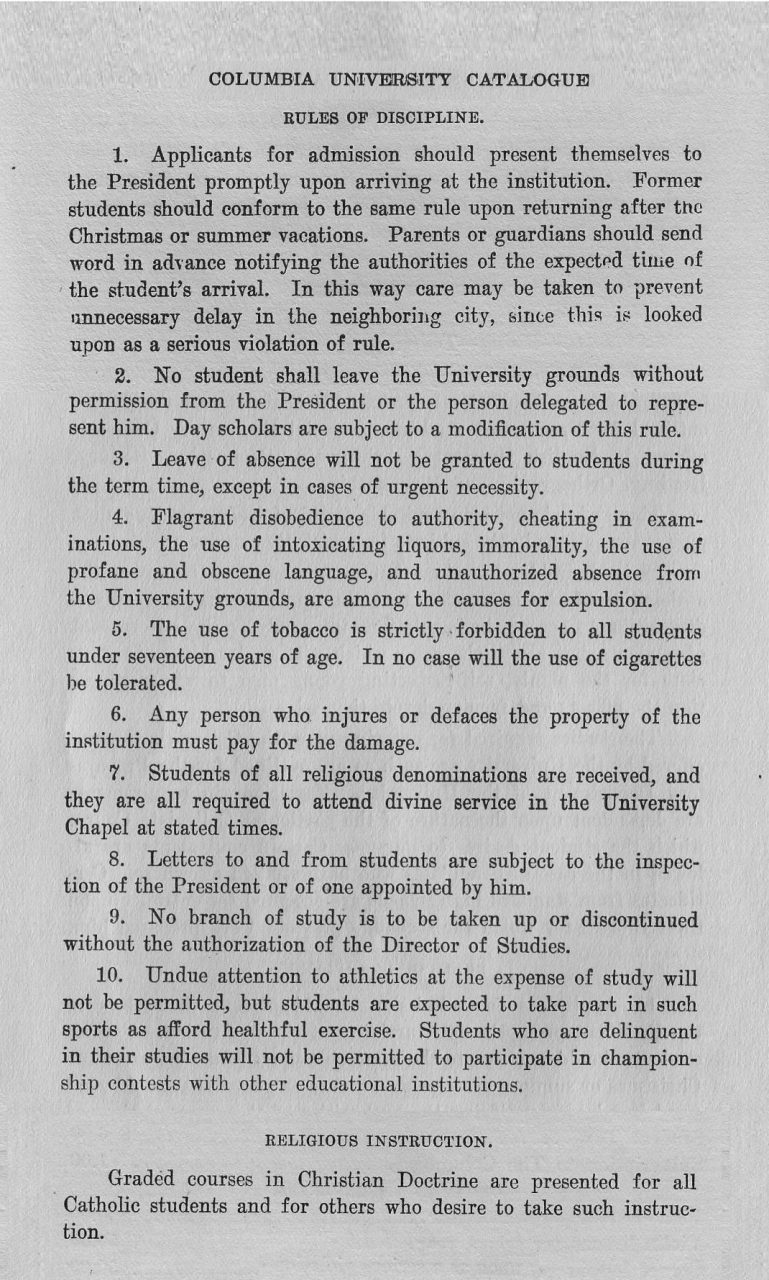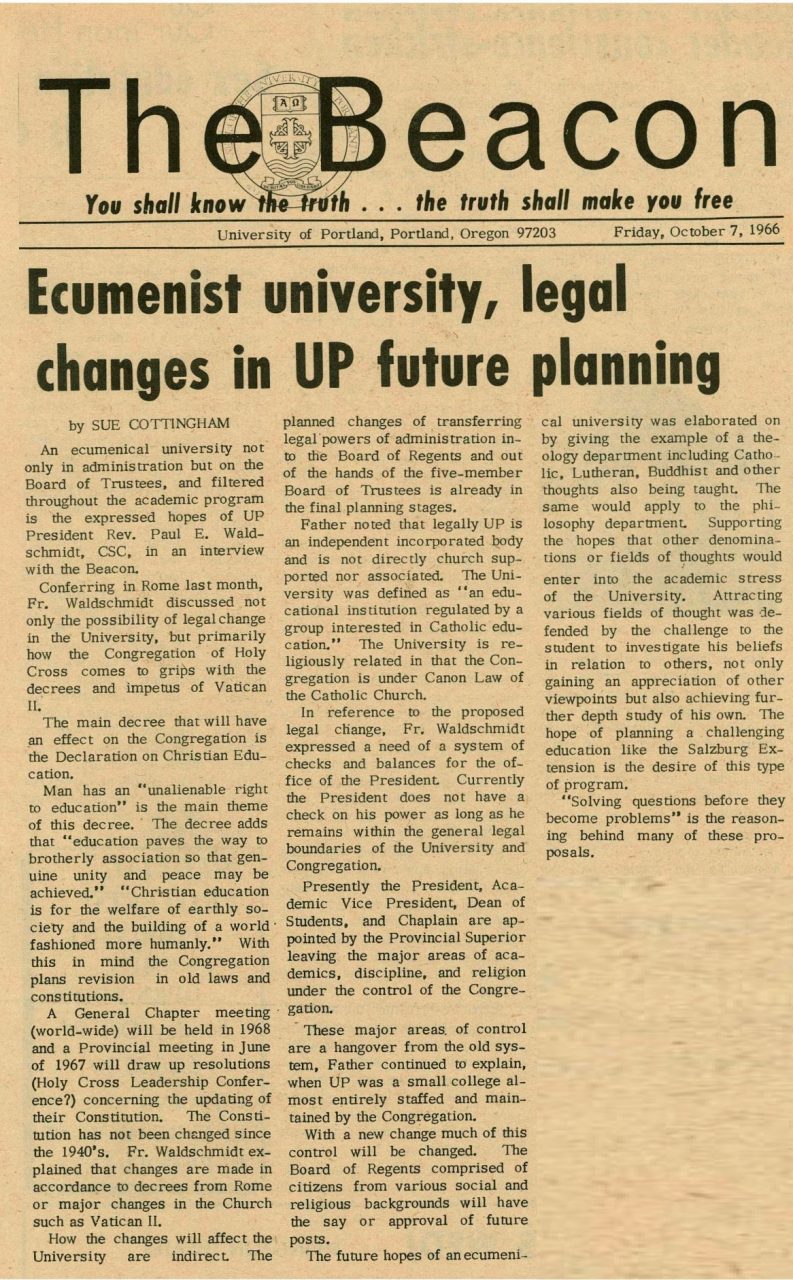
For more than a decade, the Office of Student Activities and the Office of International Education, Diversity, and Inclusion have assisted students to observe the Martin Luther King, Jr. holiday as a Day On for community involvement and service for justice and peace. A matter of character here at the University, and with deep historical precedence.
Take, for example, the following time-capsule from the year 1951, when the Intercollegiate Council of Portland area colleges launched the Fair Rose campaign (Portland is the City of Roses) as an effort to commit local area businesses to eliminate practices constituting racism and religious discrimination. The ICC campaign was modeled on the University of California’s parallel “Fair Bear” anti-discrimination campaign. The Pilots were on-board.
Volunteerism is a reliable trait among UP students. In 1952 students started Blanchet House of Hospitality for the hungry and homeless in the Portland city center. The Christmas party which began in 1948 was a long-standing tradition where student service clubs hosted orphaned children; an annual event that went well into the 1960s. The Fair Rose campaign, led by ASUP student body president Howard ‘Sy’ Rosen, ’51, mobilized UP students partnering with students from nine other area colleges as an intercollegiate effort to convince businesses in the city of Portland to eliminate racism and discrimination against their customers (insuring commercial public accommodation). Each participating school was assigned an area of the city for students to go door-to-door speaking to business owners directly in favor of fair-trade. (Beacon, April 6, 1951)
Businesses who agreed to open their doors to everyone regardless of race or color received a Fair Rose decal to display in their window or door. (Beacon, April 13, 1951). The decal, a large rosette with the words “Fair Rose. This establishment does not discriminate against races, color, or creed” was designed by UP sophomore, Nathaniel ‘Nat’ Vincent, ’53, cartoonist for the Beacon (Beacon, March 9, 1951). Merchants who declined to participate were put on a list and reported back to the Fair Rose committee. (Beacon, May 4, 1951)
As documented in the timeline composed by Leanne Serbula, Small Steps on the Long Journey to Equality: A Timeline of Post-Legislation Civil Rights Struggles in Portland, published in the Oregon Historical Quarterly, Fall 2018, v. 119, no. 3, the beginning of these efforts is simply the attempt to break down public resistance and afford uniform compliance with Oregon’s first state-wide anti-discrimination legislation.
1949 The Fair Employment Practices Act is state-wide legislation which barred discrimination due to race, religion, color or national origin, in hiring, promotion, and working condition. The practices were slow to disappear.
1950 The Portland City Council unanimously approves Ordinance 91214, prohibiting racial discrimination in public accommodations. City voters subsequently overturn the ordinance and discrimination in public accommodations remains legal. And here the Intercollegiate Council enters with the Fair Rose campaign.
1953 The Oregon Legislature adopts a public accommodations law banning discrimination due to race, color, national origin, or religion in the use of any public accommodation.
1950-1951 Highlights from the Bluff. The University of Portland celebrated its half century, 50th jubilee. Enrollment stood at 1,275 students. In January of 1951 the University became fully co-ed, opening admission in every school and division of the University to women. The men’s basketball team earned the National Association of Intercollegiate Basketball District 2 title — making an appearance at the NAIB national finals in Kansas — closing the season with a 79.3 winning percentage. The main parking lot beside the sports fields is laid out and divided into assigned parking spaces, and gradually provided with a gravel surface (as funds allowed). And, also, assisting in a fairly intensive shoe-leather effort to combat racism in the local area.

Related PortLog Entries:
Orphan Holiday
Blanchet House: Blanchet House served its first meal to the houseless and hungry on the streets of downtown Portland on February 11, 1952 (beans, bread, butter, and coffee for 227 clients).
Source materials:
Fair Rose (anti-discrimination) decal for display at businesses, 1951. Portland City Archives AD/38, Viewed December 9, 2024 from Portland City Archives via Vintage Portland. https://efiles.portlandoregon.gov/record/2776556/. Reprinted with permission.
Fair Rose decal, 1951, Vintage Portland, viewed December 9, 2024 from Vintage Portland. https://vintageportland.wordpress.com/2024/11/27/fair-rose-decal-1951/


































































